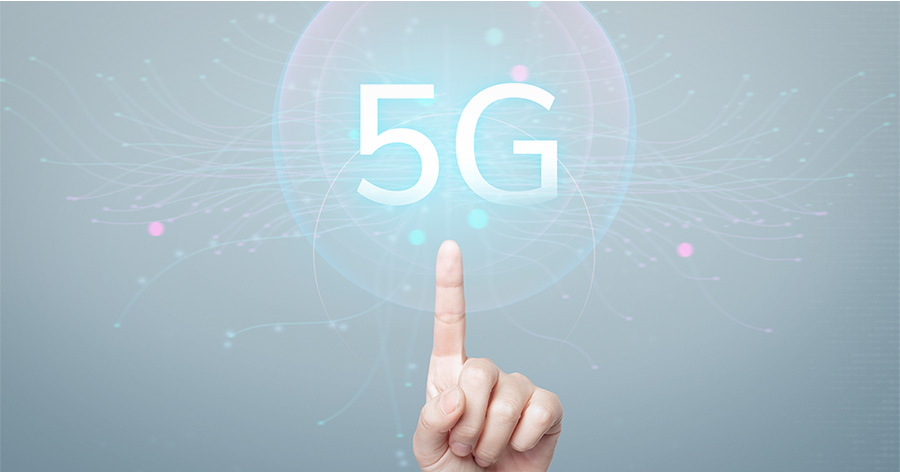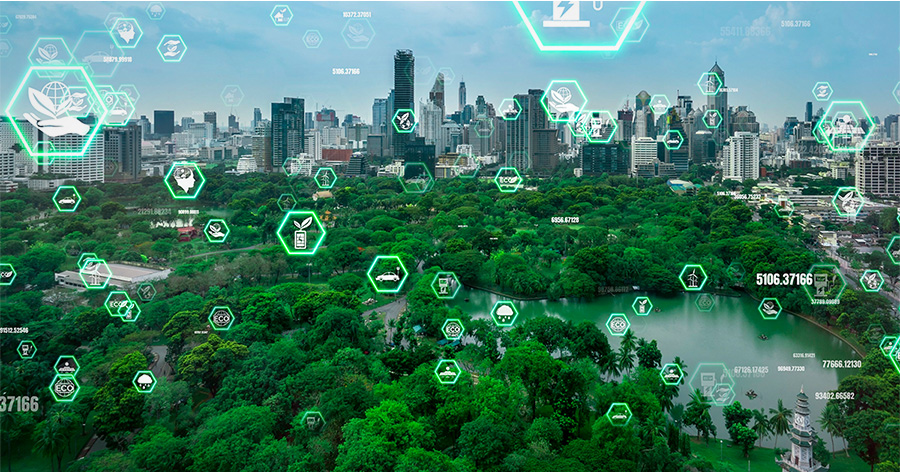
October 2024
Connecting the Future: 5G and Its Role in Smart Cities

The rollout of 5G technology is set to transform the Internet of Things (IoT) and smart cities, enabling unprecedented advancements in connectivity and efficiency. With significantly higher data speeds, reduced latency, and the capacity to support millions of devices, 5G is revolutionizing how cities operate.
Enhancements in IoT Applications
- Smart Transportation: 5G allows real-time communication between vehicles and infrastructure, improving traffic management and safety through smart signals that adapt to conditions.
- Healthcare Innovations: Remote patient monitoring benefits from 5G’s low latency, allowing for real-time data sharing and timely medical interventions.
- Energy Management: Smart grids can optimize energy distribution and consumption, promoting sustainability through efficient resource allocation.
- Public Safety: Enhanced surveillance systems and emergency response coordination become feasible with 5G, improving reaction times during crises.

Building Smart Cities
5G is essential for developing smart cities that improve the quality of life for residents. With this technology, advancements in various sectors become a reality:
- Smart Infrastructure: Buildings equipped with IoT sensors can manage energy usage more efficiently. A great example of this is Barcelona, where 5G is used to optimize energy consumption in public lighting and irrigation, automatically adjusting to environmental conditions.
- Smart Transportation: In cities like Seoul, real-time communication between vehicles and infrastructure has significantly improved traffic management and road safety, using smart signals that adapt to traffic conditions to reduce accidents.
- Citizen Participation: Mobile applications powered by 5G promote community involvement in urban planning. Singapore, for example, uses 5G networks and sensors to monitor air quality and manage energy consumption, enabling more informed decision-making that fosters a healthier and more efficient urban environment.
- Environmental Monitoring: Real-time data on air quality and waste management helps create more sustainable cities. In Singapore, the use of these technologies contributes to constant monitoring of pollution levels, allowing for quick corrective actions to protect public health.

Challenges Ahead
Despite its promise, challenges remain:
- Infrastructure Investment: Significant funding is required for 5G network implementation.
- Security and Privacy: Increased connectivity necessitates robust cybersecurity measures.
- Regulatory Frameworks: Evolving regulations are needed to ensure consumer protection and fair competition.
What do Geek´s think?
5G technology heralds a new era for IoT and smart cities, offering faster, more reliable connectivity that can enhance urban living. By embracing this innovation, we can create more efficient, responsive, and sustainable cities, paving the way for a brighter future. As we advance, prioritizing security and inclusivity will be essential in maximizing the benefits of this transformative technology.